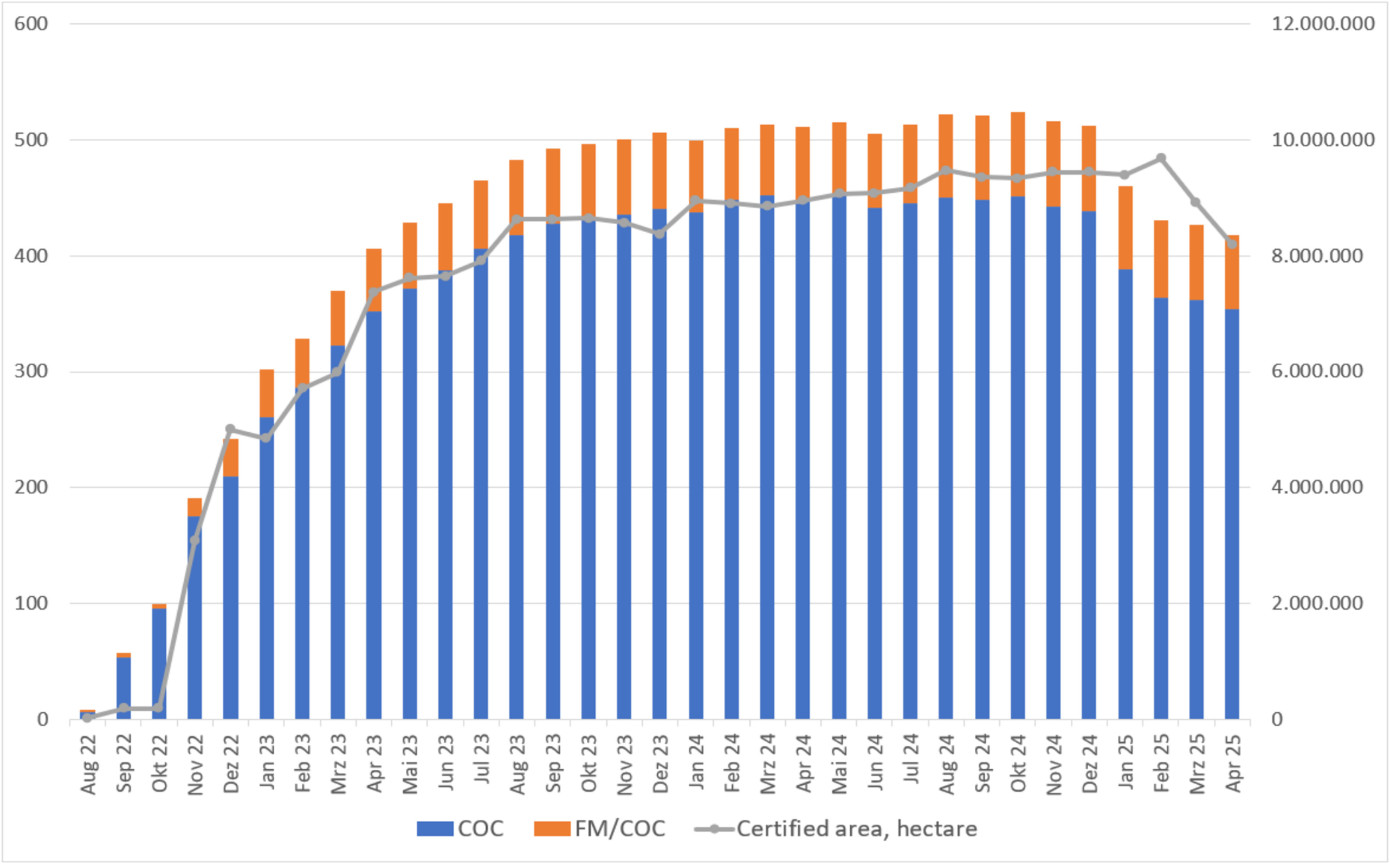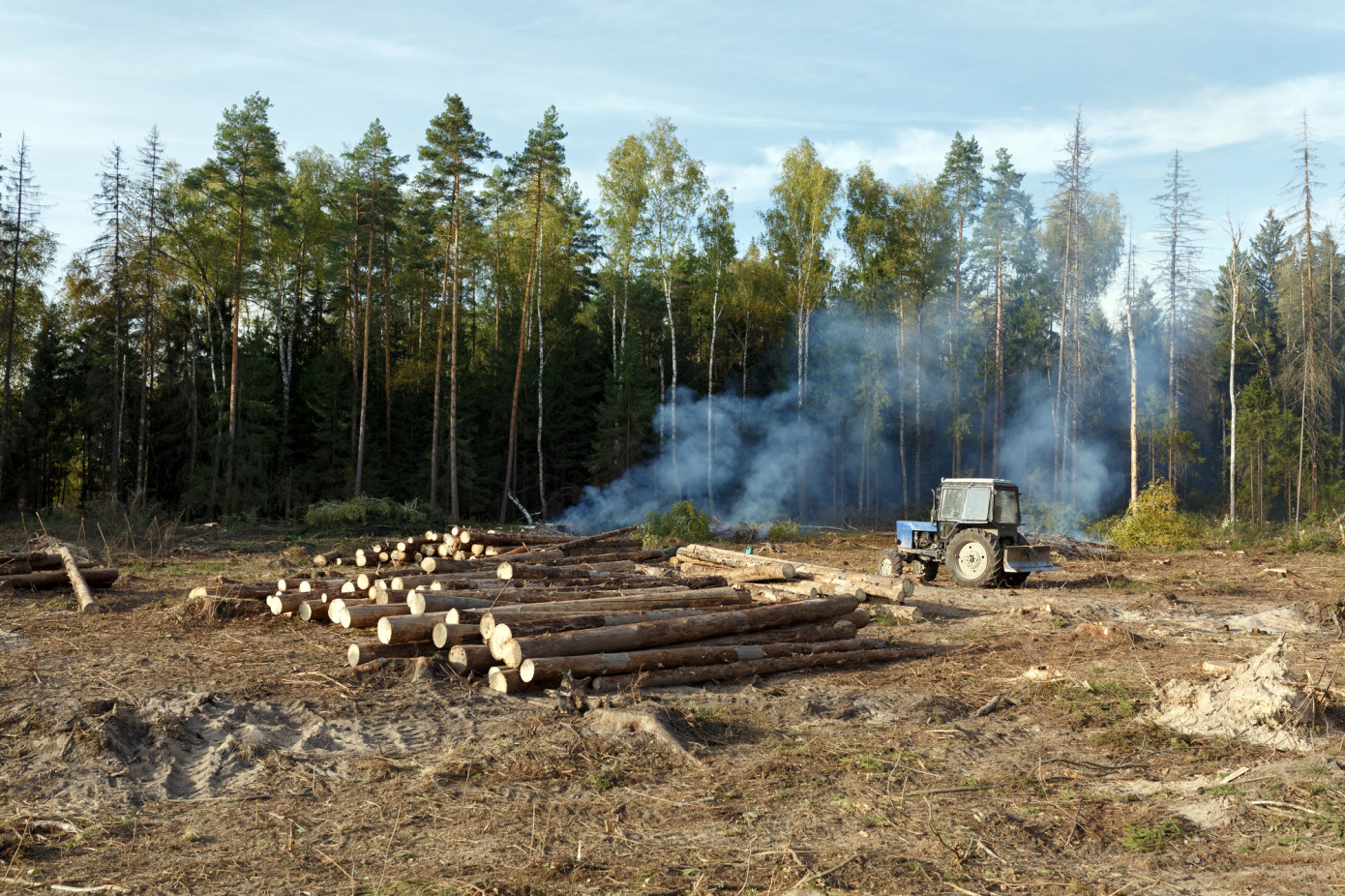The Forest Etalon (FE) certification scheme covers 8.2 million ha under 418 certificates as of 18 April 2024, a drop of 87% from the 62.99 million ha under 1,344 certificates held by the Forest Stewardship Council (FSC) in Russia on 31 January 2022, according to research by Maria Tysiachniouk of the University of Eastern Finland and Alexander Vorbrugg of the University of Bern, based on data provided by FE .
FE issued 354 chain-of-custody (CoC) certificates and 64 combined forest-management/CoC (FM/CoC) certificates by 18 April 2024, versus the FSC’s 1,072 CoC and 272 FM/CoC on 31 January 2022, indicating FE has captured just 13% of FSC’s former coverage .
Launched on 8 April 2022, the day FSC suspended all its Russian CoC certificates, FE inherited FSC’s infrastructure, staff and three-chamber governance model. Early growth was driven by retail buyers such as Leroy Merlin, which required FE certification for its Russian suppliers. In 2024, however, Leroy Merlin’s Russian unit, renamed Lemana Pro after sale to domestic ownership, opened procurement to any Russian national scheme, undercutting FE’s market advantage. Certification growth then slowed in phase III, and Q1 2025 saw 3 consecutive months of decline in both certificate counts and certified hectares, a trend FE attributes to export uncertainties and mounting domestic policy pressures. Image: Dynamics of FE certificates and certified forest area / Forest Etalon
FE’s company mix has shifted sharply since FSC’s exit: major international producers such as Mondi Business Paper, Stora Enso and Metsä Group sold most Russian assets and withdrew, while large industrial FSC holders from north-west Russia gave way to smaller operators in central regions. Finnish buyers even requested FE-CoC certification from Arkhangelsk PPM during an interim trade phase. Segezha Group moved its Segezha PPM mill, the sole FSC-certified old-growth harvester, to the weaker SFMRU/38200 scheme after FE barred any subsidiary involved in high-conservation-value breaches. Titan Group likewise violated moratoriums and built roads through protected zones, prompting FE’s zero-tolerance policy on such conduct, according to the research. FE’s major economic gatekeepers include food retailers Magnit and X5, which in 2024 began requiring FE certification from paper and packaging suppliers to preserve intact forest landscapes, ensure fair worker pay and uphold Indigenous peoples’ rights .
FE standards remain stricter than three rival national schemes, namely the National Forest Certification Scheme (NSFC), Sustainable Forest (Ustoichivii Les) and Sustainable Forest Management Russia (SFMRU/38200), in preserving intact forest landscapes and protecting Indigenous peoples’ rights. Competing schemes limit “Indigenous” status to small groups officially recognized under Russian law, whereas FE applies a broader definition, and rivals often implement weaker standards with less rigorous oversight and transparency than FE’s comprehensive auditing processes .
Environmental NGOs, once central to FSC governance, have faced state repression: WWF Russia was outlawed in June 2023 and Greenpeace in May 2023, prompting the rise of domestic NGOs “Nature and People” and “The Earth Concerns Everyone” active in FE’s environmental chamber. FE executive and NGO interviews warn that NGO dispersal and rising state-loyal pseudo-NGOs weaken high-conservation-value designation and forest oversight. Despite preserving FSC’s legacy, FE remains vulnerable: companies worry the scheme “may soon be closed” and divert to competitors seen as closer to authorities, and overall demand for certification faces uncertainty amid war-related export restrictions and a shift toward domestic and alternative markets .
